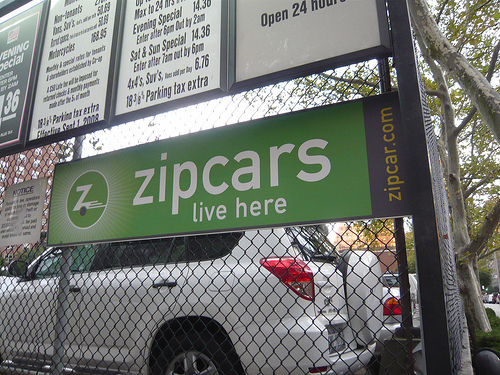With rapid growth and significant user communities, the car sharing industry in North America has been hailed as a solution to traffic, parking, and pollution problems in urban areas.
Supporters say that with enough convenient and affordable ways to rent a car when they need it, people will find owning a vehicle to be redundant, and eventually choose to go car free.
With companies like Zipcar leading the way, the car sharing industry has quickly gone global, branching out into peer-to-peer avenues and community-centric solutions.
There's no denying that these services meet an urban need and have potential for significant economic and environmental improvements, but the question remains: does car sharing really mean less cars on the road?
Researchers at the University of California recently published the results of a nationwide survey of over 6,200 carsharing members designed to answer that and other pressing questions about this new industry. What they found was that as a whole, the carsharing in North America more than delivers on its promises.
Key Findings:
How many vehicles does car sharing replace?
Browse the FAQ page of any of the most popular car sharing service websites and you'll see answers that range from 6 – 20 vehicles. The UC study came up with the most authoritative number to date: between 9-13 vehicles shed for every carsharing vehicle in the fleet. Of those, 4-6 vehicles were eliminated as a direct result of joining carsharing and the remainder were avoided/not purchased as a result of membership.
How much fuel does car sharing save?
The study found that on average, drivers traded vehicles with a fuel economy of 23 mpg for the use of shared vehicles with a fuel economy of 33 mpg. While car sharing organizations offer a variety of vehicle types to members, the majority are highly efficient hybrids, sedans, and compact cars. This helps reduce cost to both the company and car sharing members, as well as reducing the harmful emissions associated with personal transportation.
Who is giving up these cars?
The researchers noted with interest that 80 percent of this shift in favor of car sharing was a result of single car households becoming completely car free. This is significant beause it means that rather than being a once-in-a-while solution, car sharing is completely changing the way people travel and helping to create more pedestrian-friendly communities.
The study also noted that while mainly an attractive alternative for urban households already interested in becoming car free, the expansion of peer-to-peer car sharing may help to spread access and awareness into lower-density areas where owning a car is seen as essential.
##
Related stories:
- California's P2P Car Sharing Bill Signed Into Law









